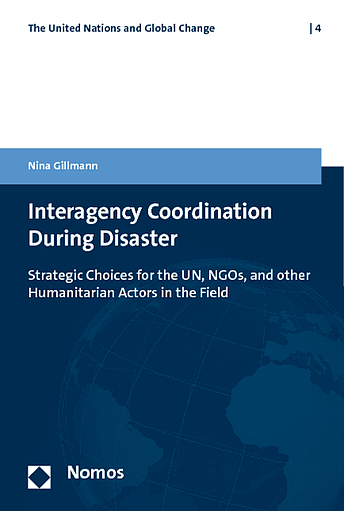englischThis publication deals with the often lamented coordination deficit among international relief organizations (mainly UN, NGOs, and Red Cross/Crescent Movement) in responding to humanitarian crises.
The author starts by reviewing the relevant literature and identifying the most important trends and actors in the international humanitarian arena. Next, she discusses the advantages and disadvantages of existing coordination models in practice, including those promoted by the UN. In addition, the author examines the suitability of organization theory (incl. network theory) for the diagnosis of coordination deficits and the deduction of a recommended course of action. Building upon organization theory, the author then proceeds to develop her own theoretical framework. Despite the complexity of the context of a humanitarian crisis, this framework allows for a surprisingly straightforward deduction of feasible strategies to improve coordination. Finally, the framework is applied and tested using several cases of coordination in the ongoing humanitarian crisis in Darfur (Sudan).
The author works as a consultant for McKinsey & Company, Inc. and specializes in advising nonprofit organizations.
Der Band befasst sich mit dem in der Öffentlichkeit häufig bemängelten Koordinationsdefizit zwischen den internationalen Hilfsorganisationen (v.a. UN, NGOs, Rotkreuz- und Rothalbmond-Bewegung) im humanitären Krisenfall.
Die Autorin vermittelt zunächst einen Überblick über die vorhandene relevante Literatur sowie die wichtigsten Trends und Akteure der internationalen humanitären Szene. Dabei werden Vor- und Nachteile der in der Praxis gängigen und vor allem von UN-Agenturen favorisierten Koordinationsmodelle herausgearbeitet. Im Anschluss daran wird die Anwendbarkeit verschiedener Ansätze aus der Organisationstheorie (v.a. Netzwerktheorie) sowohl für die Diagnose von Koordinationsdefiziten als auch für die Formulierung von Handlungsempfehlungen geprüft. Von hier aus wird ein trotz der Komplexität des humanitären Kontextes überraschend anschauliches Framework entwickelt, aus dem sich umsetzbare Strategien zur Verbesserung der Koordination ableiten lassen. Zuletzt testet die Autorin ihr Framework am Beispiel der weiter andauernden humanitären Krise in Darfur (Sudan).
Nina Gillmann ist Beraterin bei McKinsey & Company, Inc. und berät dort vorzugsweise gemeinnützige Organisationen.



